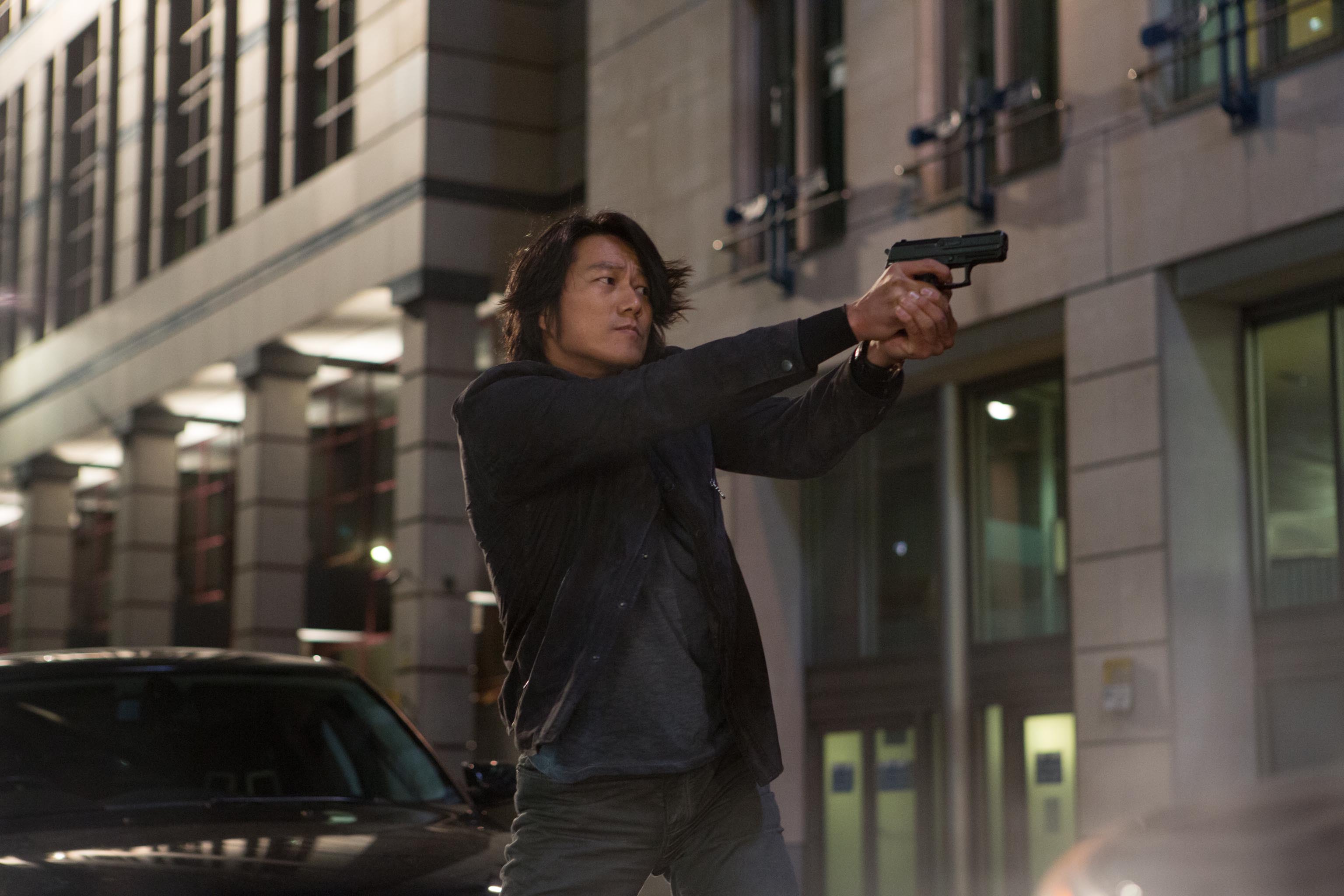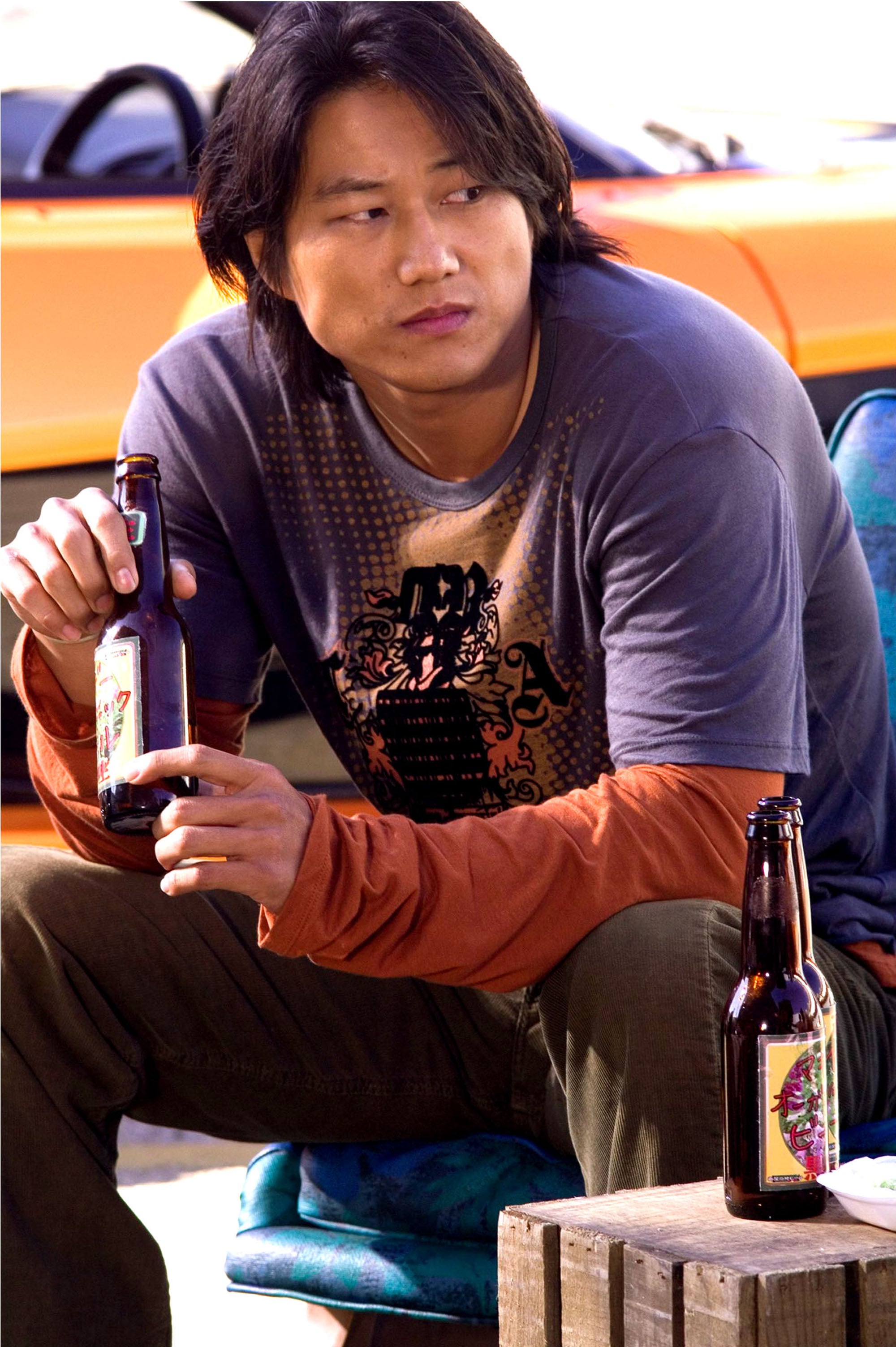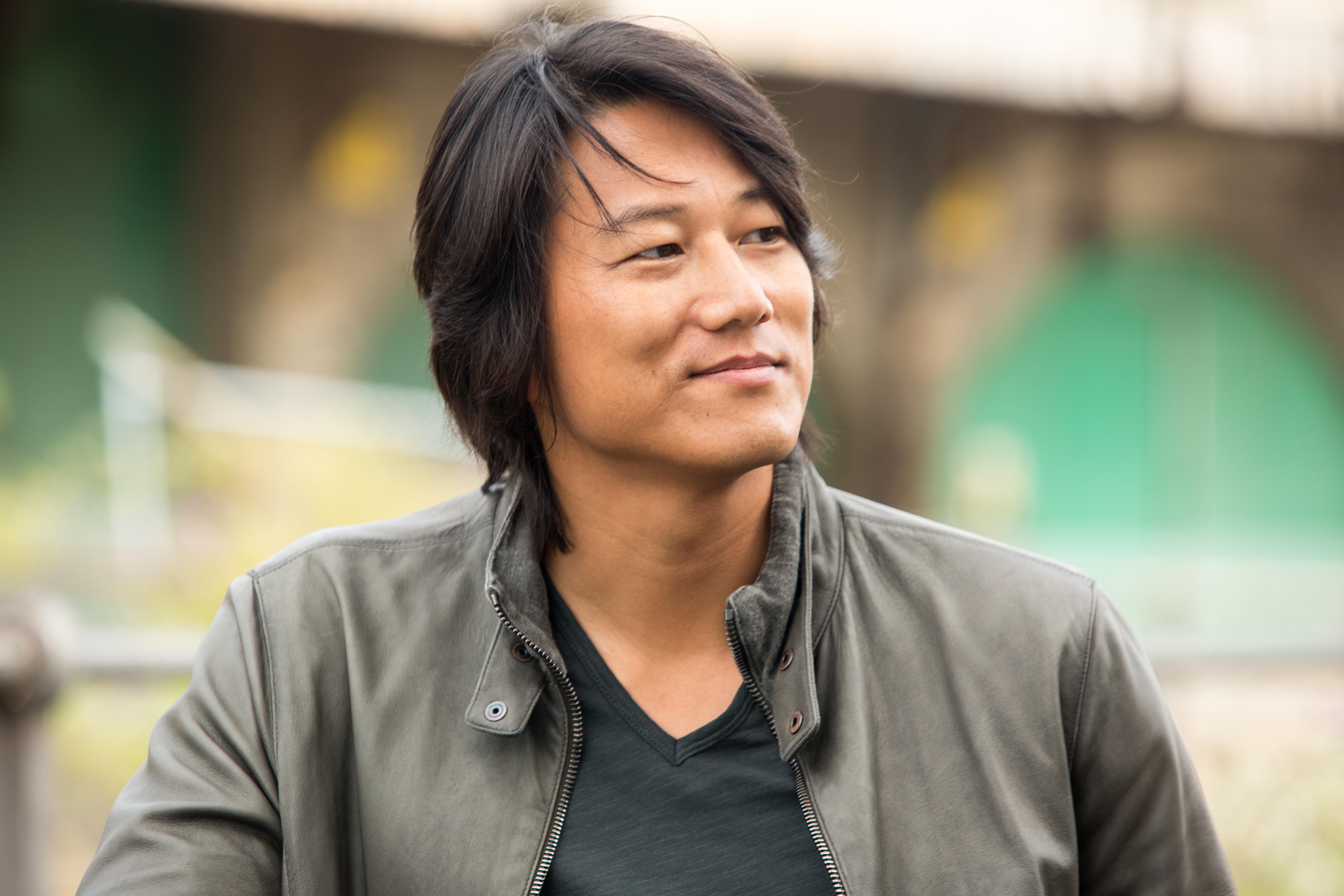‘He’s a badass motherf***er’ – Why Han is the real hero of the Fast & Furious Saga
As the fan-led #JusticeForHan campaign succeeds in resurrecting the beloved ‘Fast & Furious’ character, Kevin E G Perry talks to director Justin Lin, star Sung Kang and fellow cast members about how Han provides the soulful heart of the wildly popular franchise


Your support helps us to tell the story
From reproductive rights to climate change to Big Tech, The Independent is on the ground when the story is developing. Whether it's investigating the financials of Elon Musk's pro-Trump PAC or producing our latest documentary, 'The A Word', which shines a light on the American women fighting for reproductive rights, we know how important it is to parse out the facts from the messaging.
At such a critical moment in US history, we need reporters on the ground. Your donation allows us to keep sending journalists to speak to both sides of the story.
The Independent is trusted by Americans across the entire political spectrum. And unlike many other quality news outlets, we choose not to lock Americans out of our reporting and analysis with paywalls. We believe quality journalism should be available to everyone, paid for by those who can afford it.
Your support makes all the difference.When the first trailer for Fast & Furious 9 was released last year, there was one moment that set fans’ hearts racing like a souped-up muscle car. It wasn’t the epic stunts, or even when John Cena was introduced as a sibling rival to Vin Diesel’s Dom Toretto. It came right at the end, after Michelle Rodriguez’s character Letty announced: “Hey guys… surprise!”. In walked Sung Kang’s Han, calmly snacking away as if we hadn’t seen him killed off three movies ago. After a quick shot of Han back behind the wheel, the screen filled with the words: “Justice is coming”.
That phrase might not mean much to the casual Fast & Furious viewer, but for the many who participated in the #JusticeForHan social media campaign, it represents that rare thing – a major studio actually listening to what its fans really want. The campaign, which was started by LA Times film reporter Jen Yamato before gaining widespread support, sought to right a karmic wrong in the Fast & Furious universe. At the end of the sixth film, we’d learnt that Han’s fiery death was the handiwork of Jason Statham’s vengeful assassin Deckard Shaw – yet by the conclusion of the eighth film, Shaw was being welcomed with open arms into the ever-expanding Toretto family.
Fans felt this redrawing of Shaw’s character as a hero besmirched the legacy of Han, who had been the cool, stoic heart of the series. We’d seen him teach a boy racer how to drift; we’d seen how indispensable he was to the Toretto crew; we’d seen him find the love of his life and lose her violently – and now we were being asked to forgive his murderer?
Nobody understands how much Han matters to people more than Sung Kang himself. When we meet on the Universal Studios backlot, he tells me the #JusticeForHan campaign was “an honour”, and one that felt to him like an extension of the love and affection he regularly receives from Fast & Furious fans. “When I talk to young folks about why Han is so dear to them, they say he’s a guy that you feel you could just invite into your garage and share your story,” he explains. “He won’t judge you on how expensive your car is. He’ll take care of you, he’ll have some cool stuff lying around and he’ll probably be able to get you into the nightclub next door. He’s like an older brother – somebody that you grew up with.”
No wonder fans were so aggrieved by the aftermath of his death. When director Justin Lin heard about the campaign, he was too. “I give 100 per cent of the credit for Han being back to the fans,” says Lin, who is also returning to the series for the first time since Fast & Furious 6. “When I was gone, I didn’t know what was happening [in the films], and then I started seeing #JusticeForHan and thought: ‘Is this my Han?’ When I looked into it I was equally baffled and upset. I think he was one of the most beloved characters, and the way it was handled just felt really disrespectful.”
It was lucky, then, that Lin could rewrite the famously malleable Fast & Furious storyline to resurrect Han, a character he’d introduced in the first film he directed in the series, Fast & Furious: Tokyo Drift. “It’s kind of poetic and fortunate,” says Lin, “But at the same time I love the fact that the fans’ passion is what drove this. When I started off on Tokyo Drift we didn’t have that, and now we have this amazing community. When something was wrong they really were able to voice it.”
Lin and Kang’s history with Han dates back even beyond Tokyo Drift. They first established Han as a character in Lin’s 2002 indie Better Luck Tomorrow, which follows a group of high-achieving Asian-American students as they’re drawn ever-deeper into the world of petty crime. In that film, Kang plans Han as the ineffably cool older cousin, a cigarette perpetually dangling from his lip like a new generation’s James Dean.

Better Luck Tomorrow became Lin’s calling card to direct studio blockbusters, and the director privately vowed to take the film’s characters with him. In Lin’s first studio film, 2006’s Annapolis, Roger Fan reprises his Better Luck Tomorrow character Daric Loo. When Lin took the wheel of the Fast & Furious films for Tokyo Drift, he wrote Han into the script as a taciturn mentor for Lucas Black’s protagonist Sean Boswell. Although Han is killed in a car crash before the credits roll (the same death later attributed to Shaw), the film was so successful in reinvigorating the franchise that Lin was given leeway to make the fourth, fifth and sixth films, all of them prequels to Tokyo Drift. That way, he could revive Han as a fully fledged member of Dom Toretto’s precision-driving heist crew.
“Whenever we do this, there’ll always be a moment where Sung and I look at each other and go: ‘Holy crap, look how far we’ve come!’,” says Lin. “I mean, he was sleeping on the floor of my parents’ house when we were shooting [Better Luck Tomorrow] in Orange County, and now we’re travelling the world with this character. It’s very meaningful to know that I’m not alone, that I’ve been on this journey and have this context and perspective with Sung.”

Watch Apple TV+ free for 7 days
New subscribers only. £8.99/mo. after free trial. Plan auto-renews until cancelled

Watch Apple TV+ free for 7 days
New subscribers only. £8.99/mo. after free trial. Plan auto-renews until cancelled
For Kang, who is often treated as if he actually were Han by car-obsessed fans, the character has become more than someone he just plays in the movies. “It’s a beautiful thing,” he smiles. “How awesome is it that, even away from the cameras, I get to walk in his shoes?” As he says this, dressed in a loose Hawaiian shirt and sat within touching distance of the orange-and-black 2020 Toyota Supra he drives in the new film, it isn’t hard to imagine why fans and even co-stars see little difference between the actor and his onscreen alter-ego.
Nathalie Emmanuel, who plays super-hacker Ramsey in the series, describes Kang as “so sweet, so cool and such a lovely energy on set”, while Tyrese Gibson, who plays comic foil Roman, calls him simply “one of my favourite people”. Jordana Brewster, who plays Dom Toretto’s sister Mia, says even her seven-year-old son Julian has become a devoted member of Team Han. “Every time Julian would visit the set he was like: ‘That guy’s really cool, I’m gonna try to emulate him,’” she remembers. “He’d be like: ‘I’m going into Sung’s trailer, and I’m going to talk to him and then we’re all going to go out to dinner.’ So the three of us went to dinner at Nobu in London, and whenever Sung and I would start talking Julian would clear his throat like: ‘Mom, it’s my turn!’”
There’s more to Han than simply being everyone’s favourite older brother, however. Having now played him for almost two decades, Kang says he’s been able to grow with the character and infuse him with his own life experiences. “Just because you’re an actor, life doesn’t discriminate in how it punches you in the face,” he points out with a laugh. “I’ve been able to use the pain and the crises in my life, and it’s also about perspective. When I did Tokyo Drift, my value system, what I found important, what I woke up for, was totally different. Now I’m more grounded, so when we meet Han in Fast 9, he’s older and he’s more grounded, too. It was easy to slip back into his shoes.”

The character has long been evolving. One of the idiosyncratic traits that so endears him to fans is his habit of constantly snacking, which Lin says was a natural step after they decided that in the Fast & Furious universe he couldn’t smoke like a chimney as he’d done in Better Luck Tomorrow. “I didn’t think it was appropriate in Tokyo Drift for him to be smoking,” says Lin. “It just didn’t feel right, and so Sung came up with this idea that well, if I’m quitting, I’ve got to keep moving. So that’s where the snacking started.”
They made this character development explicit in Fast Five, when Han’s love interest Gisele (Gal Gadot) tells him: “The amount of chips you eat, the way you always have to keep your hands and mouth busy, you were a two-pack-a-day man for sure.” Han’s love affair with Gisele, which comes to a heart-wrenching end when she sacrifices her life to save him, is another key reason why Han is so important to Fast & Furious fans. He grieves for Gisele in a way no other character in the series really could.
“There’s a sorrow to him – there’s a sadness to his eyes,” says Kang. “I think it goes to the definition of what ‘han’ actually even means. It’s hard to translate, but the word ‘han’ in Korean means something like yin and yang. No matter how good [something seems], there’s gonna be bad, so you have to prepare. Every time you see Han, he forces you to settle down. Even the snack stuff, when you snack it’s like you’re saying: ‘Hey, slow down. Let’s watch. Let’s listen.’ I think you look at Han and you go: ‘What does he represent?’ He lost someone. That’s why he exists.”

Lin agrees that there’s a fragility to Han that makes him stand apart in a series largely populated by invulnerable superhumans. He says that’s rooted in how he and Kang developed the character, swapping stories about being young and working class in California and the American South respectively. “I think the creation of Han represents our dreams of growing up to be someone that’s pragmatic, who has gone through a lot but who the world has not crushed,” says Lin. “Han is a badass motherf***er not because he’s invincible, but because he’s a human being. He’s the one character that, after a fight, he’ll have scars and stitches. That’s something we’re very conscious of, and obviously we take a lot of personal pride in building him.”
Han has also, up until now, carried with him a tragic pathos because we thought we knew how his story ended: in a fireball on a road in Tokyo. That may have been rewritten, but Kang says any reservations he might have had about bringing the character back from the dead disappeared the moment he knew Lin would be in the director’s chair. “Justin grew up with Han, and we developed the character together,” says Kang. “I know what Han represents to him, not only within the story, but what he represents for Asian-American men. He represents a place at the table. He’s not there for an ‘Asian’ reason. Han doesn’t show up going: ‘Hey, I brought the takeout!’ or ‘I’m the computer guy’. He’s there because he’s a bro, and we forget that he has this face.”
In Han, he says, he and Lin have created the sort of hero they wanted to see in the world – one who didn’t have to be a stereotype in order to win the day. “The Fast & Furious world gets very little credit for these things, but it pushes the needle forward,” argues Kang. “When the 12-year-old version of me in Georgia goes to school, and they go to the cafeteria, and they’re used to sitting alone, all of a sudden they might get invited to a table because he kind of looks like Han. It’s that little change, you know?”
‘Fast & Furious 9’ is in cinemas from 24 June



Join our commenting forum
Join thought-provoking conversations, follow other Independent readers and see their replies
Comments